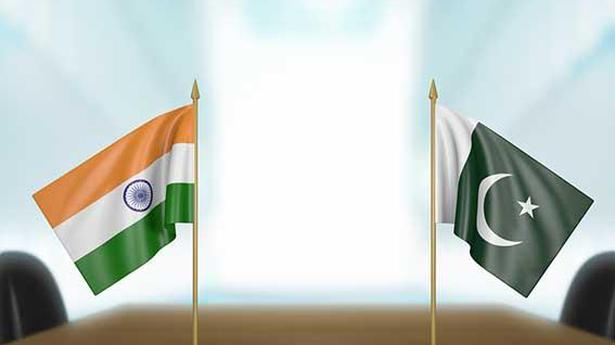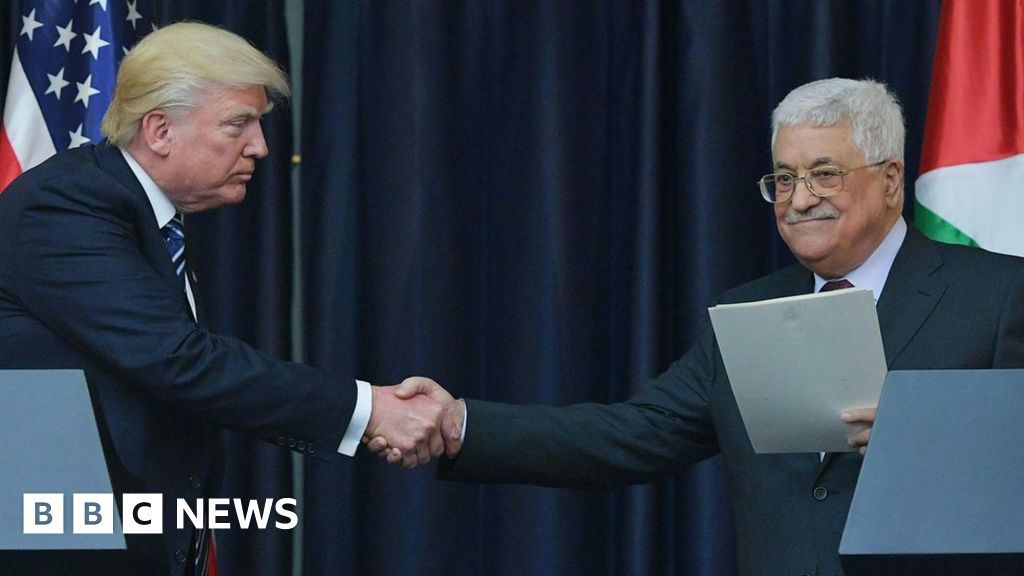Analyzing India's Reduced Engagement With Pakistan, Turkey, And Azerbaijan

Table of Contents
Deteriorating India-Pakistan Relations
The cornerstone of India's reduced engagement lies in the drastically deteriorated relationship with Pakistan. This downturn is primarily fueled by persistent cross-border terrorism and unresolved territorial disputes.
The Kashmir Issue and Cross-Border Terrorism
- Persistent cross-border terrorism emanating from Pakistan: For decades, Pakistan-based terrorist groups have conducted numerous attacks within India, resulting in significant loss of life and destabilizing the region.
- India's revocation of Article 370: India's decision to revoke Article 370, which granted special status to Jammu and Kashmir, further exacerbated tensions with Pakistan, leading to a significant diplomatic rift.
- Lack of progress on dialogue: Numerous attempts at dialogue and peace negotiations have yielded minimal results, further solidifying the distrust between the two nations.
- International condemnation of Pakistan-sponsored terrorism: The international community's increasing condemnation of Pakistan's support for terrorism has further isolated Pakistan, impacting its ability to exert influence on the India-Pakistan relationship.
The historical context of this conflict, dating back to the partition of India in 1947, continues to fuel animosity. Recent escalations, including the Pulwama attack in 2019 and subsequent military responses, highlight the fragility of the peace process and the significant role of terrorism in poisoning relations. Statistics on terrorist attacks and casualties further underscore the severity of the problem and its impact on India's engagement strategy.
Economic and Diplomatic Isolation of Pakistan
- Pakistan's economic instability: Pakistan's persistent economic woes, characterized by high inflation, debt, and reliance on international bailouts, have diminished its leverage in regional affairs.
- Declining international support: The international community's growing concern over Pakistan's support for terrorism has led to reduced international support and increased diplomatic isolation.
- Sanctions and FATF greylisting: Pakistan's placement on the Financial Action Task Force (FATF) grey list highlights its failure to adequately combat money laundering and terrorism financing, further limiting its economic opportunities and international standing.
- Impact on bilateral trade and cooperation: The strained relationship has resulted in a significant decline in bilateral trade and cooperation between India and Pakistan.
The economic pressures faced by Pakistan directly influence India's engagement strategy. A weakened Pakistan is less capable of sponsoring terrorism and less influential in regional politics, influencing India's decision to maintain a distance.
Strained Ties with Turkey
India's relationship with Turkey has also witnessed a noticeable cooling. This is largely attributable to differing stances on regional conflicts and shifting global alliances.
Differing Stances on Regional Conflicts
- Turkey's support for Pakistan: Turkey's close ties with Pakistan, including its vocal support on the Kashmir issue, directly contradicts India's position.
- Divergent views on the Kashmir issue: Turkey's consistent support for Pakistan's stance on Kashmir significantly hampers the development of closer ties with India.
- Turkey's relations with other regional rivals of India: Turkey's burgeoning relationships with some of India's regional rivals further complicates the bilateral relationship.
These differing viewpoints on crucial regional issues create a significant obstacle to strengthening India-Turkey relations.
Shifting Global Alliances and Geopolitical Competition
- Influence of great power competition: The increasing influence of great power competition, particularly between the US and China, and Russia, affects the dynamics of regional alliances.
- Turkey's growing relationship with China and Russia: Turkey's strengthened ties with China and Russia complicate its relationship with India, given India's own strategic considerations concerning these powers.
- Impact on India's strategic autonomy: Turkey's evolving alliances necessitate a cautious approach from India to protect its strategic autonomy and interests.
The broader geopolitical context plays a crucial role in shaping India's approach to Turkey. The shifting alliances and great power competition necessitate a careful assessment of the risks and benefits of increased engagement.
Evolving Relationship with Azerbaijan
In contrast to the strained relationships with Pakistan and Turkey, India's relationship with Azerbaijan presents a more nuanced picture. While engagement has not declined sharply, it is characterized by a cautious approach.
Focus on Energy Security and Economic Ties
- India's growing energy dependence: Azerbaijan's strategic location and energy resources are increasingly important for India's energy security needs.
- Bilateral trade agreements: India and Azerbaijan have established bilateral trade agreements aiming to enhance economic cooperation and investment.
- Strategic location of Azerbaijan: Azerbaijan's location along crucial trade routes adds to its strategic importance for India.
- Investment opportunities: Azerbaijan offers opportunities for Indian investment in various sectors, furthering economic ties.
The economic dimension drives much of India's engagement with Azerbaijan, with a focus on securing energy supplies and expanding trade.
Cautious Approach Amidst Regional Instability
- Geopolitical risks in the Caucasus region: The Caucasus region remains susceptible to geopolitical instability, affecting India's approach to Azerbaijan.
- Armenia-Azerbaijan conflict: The ongoing conflict between Armenia and Azerbaijan poses security implications for India's interests in the region.
- Potential security implications for India's interests: India must carefully consider the potential security risks before expanding its engagement with Azerbaijan.
Despite the economic benefits, regional instability introduces a degree of caution into India's approach to Azerbaijan. The potential for spillover effects from regional conflicts necessitates a measured response.
Conclusion
This analysis highlights the complex interplay of geopolitical factors, security concerns, and economic considerations that have shaped India's reduced engagement with Pakistan, Turkey, and Azerbaijan. The changing global landscape and regional dynamics necessitate a nuanced understanding of India's evolving foreign policy priorities. The differing levels of engagement reflect India's strategic recalibration, prioritizing its national interests and security concerns.
Further research into India's evolving foreign policy is crucial for understanding the future trajectory of its relationships with Pakistan, Turkey, and Azerbaijan. Continued monitoring of India's reduced engagement, particularly in relation to the shifting geopolitical landscape and regional dynamics, will provide valuable insights into the future of South Asian and Eurasian relations.

Featured Posts
-
 Evaluating The Success Of Trumps Middle Eastern Diplomacy
May 18, 2025
Evaluating The Success Of Trumps Middle Eastern Diplomacy
May 18, 2025 -
 Ray Epps Sues Fox News For Defamation Jan 6th Insurrection Claims
May 18, 2025
Ray Epps Sues Fox News For Defamation Jan 6th Insurrection Claims
May 18, 2025 -
 Every Taylor Swift Taylors Version Album Ranked A Comprehensive Guide
May 18, 2025
Every Taylor Swift Taylors Version Album Ranked A Comprehensive Guide
May 18, 2025 -
 Jan 6 Hearing Witness Cassidy Hutchinson To Publish Memoir This Fall
May 18, 2025
Jan 6 Hearing Witness Cassidy Hutchinson To Publish Memoir This Fall
May 18, 2025 -
 Dove Cameron And Damiano David Spotted Holding Hands In New York City
May 18, 2025
Dove Cameron And Damiano David Spotted Holding Hands In New York City
May 18, 2025
Latest Posts
-
 You Toon Caption Contest Booing Bears Reign Supreme
May 18, 2025
You Toon Caption Contest Booing Bears Reign Supreme
May 18, 2025 -
 You Toon Caption Contest Winner Announced Booing Bears Take The Prize
May 18, 2025
You Toon Caption Contest Winner Announced Booing Bears Take The Prize
May 18, 2025 -
 This Weeks You Toon Caption Contest Winner Booing Bears
May 18, 2025
This Weeks You Toon Caption Contest Winner Booing Bears
May 18, 2025 -
 2025 Nfl Draft Analysts Assessment Of The New England Patriots
May 18, 2025
2025 Nfl Draft Analysts Assessment Of The New England Patriots
May 18, 2025 -
 Nfl Analyst Forecasts Patriots Trajectory Following 2025 Draft
May 18, 2025
Nfl Analyst Forecasts Patriots Trajectory Following 2025 Draft
May 18, 2025
